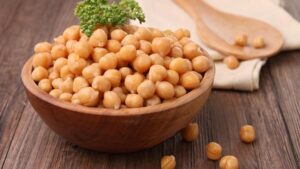Health Benefits of Okra

Okra, also known as Lady Finger or Bendi, is a member of the mongoose family and is native to India and Nepal. It has been cultivated for centuries in Asia, Africa, and the Americas. Okra is a unique vegetable because of its uncanny ability to be slimy no matter how you cook it. Okra is an excellent source of Vitamin C and A; it also has fair amounts of Vitamin B6, Calcium, Copper and Iron. These are some of the most remarkable health benefits of okra that you need to know:
Nutrition and Health Benefits of Okra
The nutritional value of okra is high, particularly the high amount of Vitamin C and carotenoids, which is not surprising given that the vegetable is originally from the tropics. The health benefits of okra include better digestion, lower blood pressure, reduced risk of cancer, weight loss, and more. Let’s look at these in more detail.

Okra is a good source of dietary fiber and water, which makes it very filling. This means that it is a great staple food for people who are trying to lose weight. Okra has no fat, very few calories, and is low in sodium. It is particularly high in dietary fiber, which helps to slow down digestion and makes you feel fuller for longer. Dietary fiber also helps to reduce cholesterol levels and prevent blood sugar from spiking.
Cancer Prevention
The high levels of Vitamin C in okra help to prevent cancer by reducing the damage caused to DNA. The carotenoids in okra are fat-soluble antioxidants that also prevent cancer. Okra is a particularly good choice if you are at high risk of developing cancers of the digestive system, such as colon and pancreatic cancers.
Better Digestion
The fiber content of okra also helps to keep your digestive system healthy by reducing inflammation, removing toxins, and speeding up bowel movements. Okra has been shown to soothe digestive disorders like irritable bowel syndrome and ulcerative colitis. It is also effective at treating constipation and diarrhea, so it can be used as a cure-all for digestive issues if needed.
Other benefits
Okra is an excellent source of Vitamin B6, which is important for your nervous system, red blood cells, and the production of antibodies. It also contains Vitamin A, which is important for healthy eyes, skin, and mucous membranes. It is also rich in minerals like Copper, Iron, Potassium, and Calcium. These are helpful for maintaining strong bones and teeth as well as good blood flow.
How to Select and Store Okra
When choosing okra, make sure that it does not have any soft spots, wrinkles, or dark spots on the stem. It should be green in color and feel firm to the touch. To store, place the okra in a paper bag, do not put it in plastic since it will go bad quickly. Keep it in the fridge and it will keep for at least a week. To prevent the okra from becoming soggy when stored, place it in a colander or strainer and leave it sitting in the sink with water running through it. When you are ready to use it, you can cut off the stem and cut the pods in half lengthwise. It is best to use fresh okra as soon as possible because it can go bad quickly due to its high water content.

How to cook okra in a healthier way
7 okra 2 peppers, one yellow and one orange, one onion and 2 tomatoes. Cut the onion into cubes and sauté in olive oil for 3 minutes, add the chopped bell pepper, sauté for another 1 minute and add the tomatoes and sauté for another minute, then add the chopped okra or whole okra. When cooking, add a teaspoon of vinegar, the vinegar will cut the okra goo. Cook for 10 minutes.




